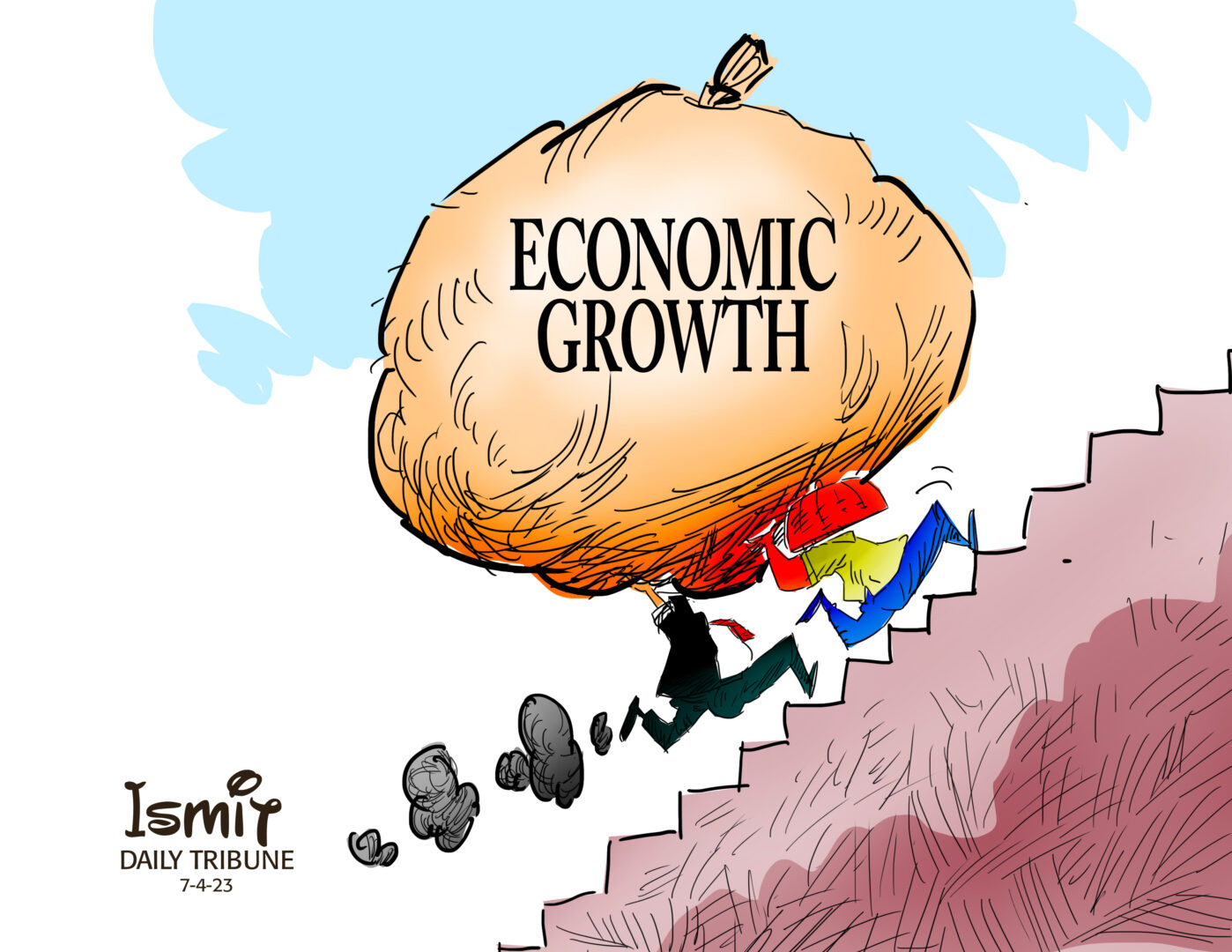Among the crucial steps that President Ferdinand “Bongbong” Marcos Jr. took after his 2022 victory was recognizing the role of a true partnership with stakeholders in the economy and forming the Private Sector Advisory Council.
In past administrations, such a relationship between government leaders and business was perfunctory, as a circle of associates always got the choice cuts.
The PSAC is made up of all the big guns of industries, making it an inclusive consultative body to the President.
Thus, the partnership is bearing fruit with the steady growth of the economy, which has returned to the six-percent-plus annual clip that is necessary to eradicate poverty.
Socioeconomic Planning Secretary Arsenio Balisacan said the robust gross domestic product or GDP expansion is expected to continue as it is supported by a strong labor market performance and a downtrend in inflation that has remained within the government’s target.
The economic rebound is remarkable considering that President Marcos began his term under very challenging and unique circumstances as a result of the pandemic when lockdowns crippled businesses that resulted in the economy contracting by 9.5 percent in 2020.
The contraction resulted in several setbacks, including an increase in the national debt, education losses, business closures, and a high unemployment rate that economists called socioeconomic scars.
The inconsolable detractors then launched an offensive against the President for his several trips abroad during his first year, calling them a waste of public funds.
Immediately, however, the influx of investments confounded the critics and kept the economy at an even keel while recession threatened most parts of the world.
With the private sector behind him, President Marcos created an open and enabling environment for businesses while showing a deep commitment to a level field.
Capable economic managers enabled immediate solutions to the constraints to the growth momentum.
Investor confidence also scaled up as the economy was opened to trade, investment, and competition with our accession to the Regional Comprehensive Economic Partnership; the creation of Green Lanes for Strategic Investments; amendments to the Implementing Rules and Regulations of the Renewable Energy Act and the Build-Operate-Transfer Law; and changes to the Joint Venture Guidelines.
Recently, Marcos convened the National Innovation Council to take development to the next step of progress, which is the country developing its industries through research and development which are sorely lacking in the growth story.
Keeping the economy’s momentum is intended to generate jobs for the country to benefit from the demographical sweet spot of the majority of the population being of working age, which is the envy of developed countries.
The competition for labor has become heated as a result of most rich nations having an aging population. Thus, most young Filipinos aspire to work abroad because of the higher pay.
Keeping the population healthy as the economy grows is being done to ensure the provision of targeted transfers and assistance to those hardest hit by inflation and to shield the poor from high prices.
In 2022, the economy grew by 7.6 percent, exceeding the government’s 6.5 to 7.5-percent target. A 6 to 7-percent economic growth is seen this year.
Inflation is expected to further ease and settle within the government’s 2 to 4-percent target range by the end of the year.
Despite the doomsayers, the economy is on the right path to becoming a growth leader in the region that is destined to become the global center of progress and prosperity.
